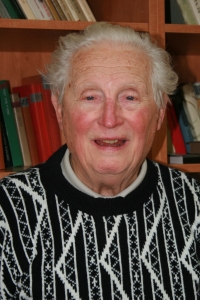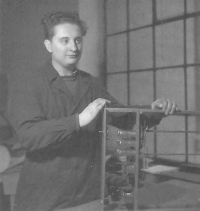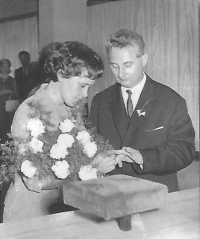Not having to be embarrassed about my credit

Download image
Miroslav Bouček was born on September 14, 1928, in Prague. He grew up in a devout family, which has influenced his whole life. His father worked as a chauffeur and his mother was a housewife. The family lived in a balcony access house on Žitná street and had to make do with very little. The family moved to Břevnov in 1939. After leaving school, Miroslav began an apprenticeship in fine mechanics for the company Kinoelektrik. In February 1945, he witnessed the fire of the Emauzy monastery caused by the bombing of Prague. In March 1945, he was conscripted for forced labour – he participated in digging an anti-tank trench at “Moravska brana”. Towards the end of the war, he escaped along with others and built barricades during the Prague Uprising. In 1966 his mother died, and he also got married to his wife Vera. In 1968, their daughter Hana was born, a year later their son Jan. Shortly after that, the family moved to Prosek. Although the couple were active protestants, their children were allowed to study. Boucek worked as an electromechanical engineer his whole life. He retired in 1988. To this day, he lives in his flat in Prosek and regularly attends the local centre for senior citizens.


